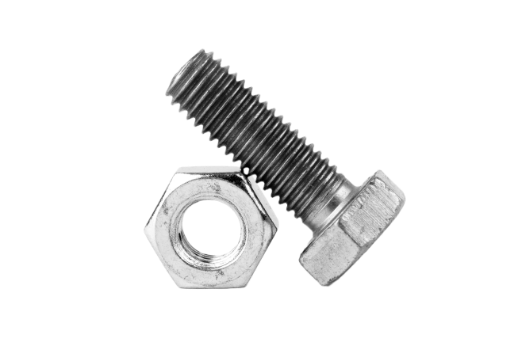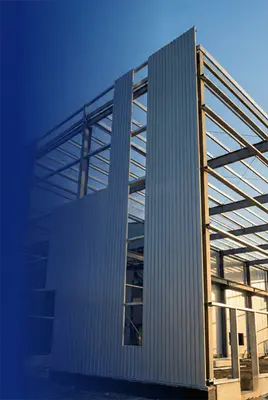
Metal roofing screws are integral components of a complete metal roofing system. They guarantee secure connections between the metal panels and the underlying support structure. As a roofing contractor, you understand the importance of delivering leak-free roofs to your clients. That's why using the best metal roofing screws is essential. This guide will take a look at the various types of metal roofing screws, their specific uses, and factors to consider when making this important decision for a project.
Understanding Metal Roofing Screws
Metal roofing screws, also known as self-tapping or self-drilling fasteners, are designed to guarantee a secure connection between metal roofs and main structures. Their sharp and pointed tips make piercing effortless through the metallic panels while securely affixing them onto substrates such as wood or steel framing. When installing metal roofing panels, it's essential to choose screws made from durable materials like stainless steel or coated steel.
Types of Metal Roofing Screws
There are several types of metal roofing screws on the market, each designed for a specific purpose. The best screws for metal roofs have unique features that make them suitable for their intended application. Some of the most common types of metal roofing screws include:
Exposed Fastener Screws
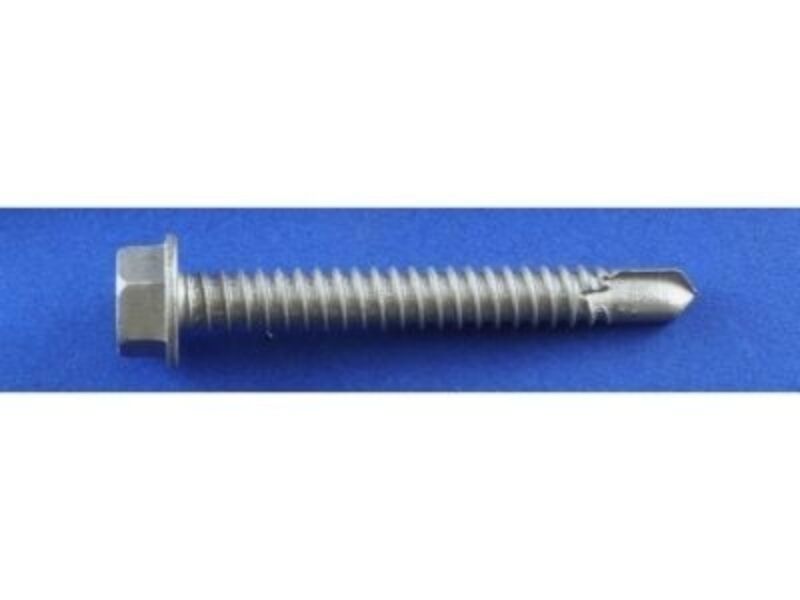
Exposed fastener screws are the most common type of metal roofing screws. They are used for attaching metal panels directly to the roof's structure, and leaving the screw head visible on the surface. Fastener screws typically have a rubber or neoprene washer beneath the screw head to create a watertight seal and prevent leaks. Exposed fastener screws are ideal for corrugated and ribbed metal roofing panels.
Concealed Fastener Screws
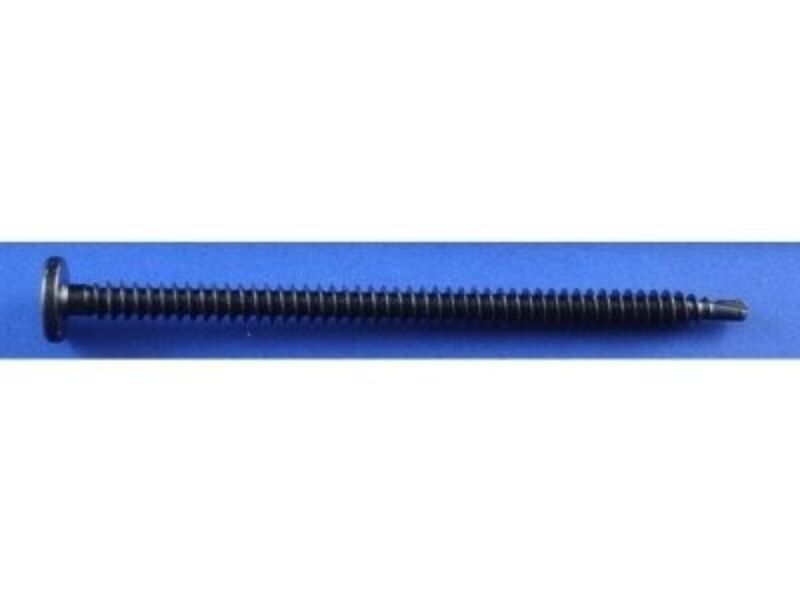
Concealed fastener screws, also known as clip screws or pancake head screws, are designed for use with standing seam metal roofing systems.
They are used to attach the roofing clips to the roof's substrate and are hidden beneath the metal panels. As a result, they create a clean, streamlined appearance without visible fasteners on the surface. Concealed fastener screws are suitable for both residential and commercial applications where aesthetics are a priority.
Self-Drilling Screws
Self-drilling screws have a drill bit-like tip that enables them to pierce through metal without pre-drilling. They are ideal for attaching metal roofing panels to metal framing or purlins, as they can easily penetrate both layers of material.
Self-drilling screws save time and labor by eliminating the need for pre-drilling holes, which makes them an efficient option for metal roofing installations.
Wood-to-Metal Screws
Wood-to-metal screws are designed for attaching metal roofing panels to wooden structures, such as rafters or trusses. They have a sharp, aggressive thread that can easily penetrate wood and metal materials without splitting the wood. Wood-to-metal screws create a secure connection between the metal panels and the wood substrate to help ensure the longevity and performance of the roof.
Factors to Consider When Choosing the Best Metal Roofing Screws
To select the best metal roofing screws for your project, consider the following factors:
Material Compatibility
It's essential to choose screws that are compatible with the metal roofing material to prevent galvanic corrosion, which occurs when two dissimilar metals come into contact with each other. For example, stainless steel screws are recommended for aluminum roofing panels (however, never use 410 stainless steel screws on aluminum unless the screws are coated), while coated galvanized steel screws are suitable for other metal panels.
Corrosion Resistance
The best metal roof screws should be highly resistant to corrosion to ensure the longevity of the installation. Mark Waller, of Scottsdale roofing company, Kore Roofing, mentions "choosing the right metal roofing screws is just as important as selecting the roofing panels themselves. A high-quality fastener ensures a secure, leak-free installation that stands the test of time, especially in harsh weather conditions."Screws with protective coatings, such as zinc, ceramic, or powder coatings, provide additional protection against rust and other effects from weathering. Stainless steel screws are an ideal choice for coastal areas and harsh environments.
Screw Length
Choose screws that are long enough to penetrate the metal panel and securely fasten it to the substrate. The screw length should be at least 1 inch longer than the combined thickness of the metal panel and the underlying structure in order to allow for adequate engagement and secure fastening.
Washer Quality
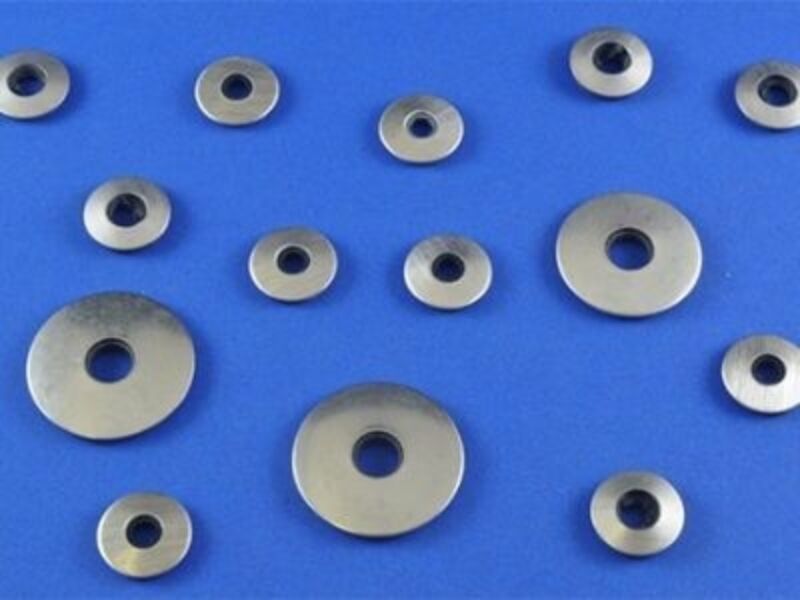
High-quality rubber or neoprene washers are crucial for creating a watertight seal between the screw head and the metal panel. Look for screws with washers that are resistant to UV exposure and temperature fluctuations to ensure a long-lasting, leak-free installation.
Installation Tips for Metal Roofing Screws
Even though corrugated metal roofing is generally strong and durable, the potential for the difficulty lies not in the metal itself, but in how it's attached to your roof. Depending on your specific design, you may require thousands of screws, fasteners, and seams that must all be well-secured to protect against moisture intrusion. Ensuring a completely watertight roof requires each area of potential leakage to be properly sealed.
1. Use the Right Type of Screw
Select the appropriate type of screw for your specific metal roofing system and installation method. Exposed fastener screws are suitable for corrugated and ribbed panels, while concealed fastener screws are ideal for standing seam systems.
2. Drive Screws Straight
Always drive screws straight and perpendicular to the metal panel to ensure proper engagement with the substrate and a watertight seal. Avoid driving screws at an angle, as it can compromise the washer's effectiveness and cause leaks.
3. Don't Over-Tighten Screws
Over-tightening screws can damage the washer and lead to leaks or cause the metal panel to warp. Tighten screws until the washer is compressed and snug but not overly flattened.
4. Pre-Drill Holes
When using screws without self-drilling tips, pre-drill holes in the metal panels to prevent damage and ensure proper alignment. Use a drill bit that is slightly smaller than the screw diameter to create a tight, secure fit.
Fastener Systems Understands Metal Roofing and Metal Roofing Screws
Fastener Systems, Inc. carries the highest quality fasteners for metal roofing and other uses. Our products have been created to stand up under the most strenuous conditions, which is why they deliver an exceptional level of satisfaction for our customers.
We also carry caulking, tape, suspended ceiling supplies, and other necessary equipment for the construction industry.
Contact us today to learn more and order an online catalog for access to our entire product line!
